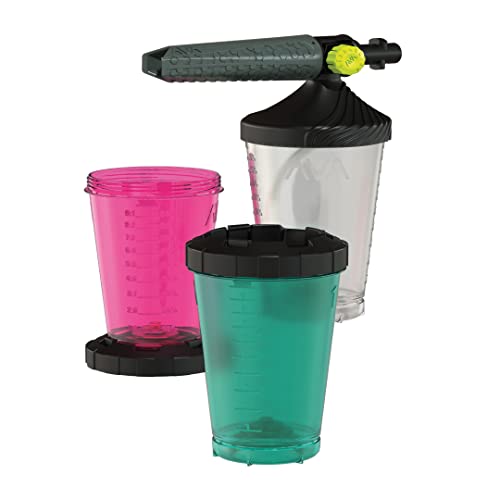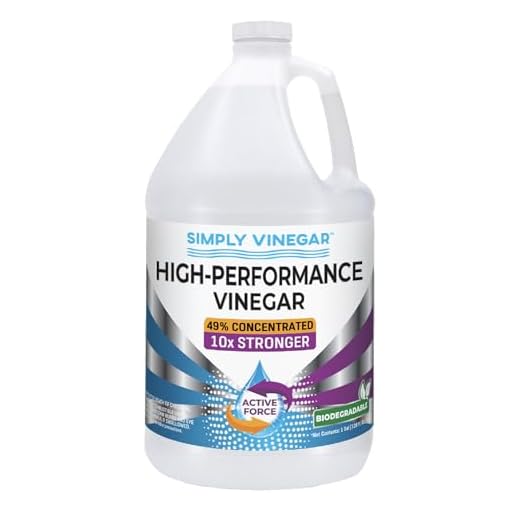



Utilising acetic acid in high-pressure cleaning systems is not advisable. While many homeowners seek natural alternatives for effective cleaning, the acidic nature of this compound can lead to damage to internal components, seals, and hoses. Systems designed for specific cleaning agents often require specific pH levels for safe operation, and introducing an acidic solution can create an environment that is detrimental to the machinery.
If a natural cleaning solution is desired, consider products formulated specifically for high-pressure apparatuses. These alternatives are engineered to provide efficacy without compromising the longevity and functionality of the equipment. Always read the manufacturer’s instructions to determine suitable cleaning agents and avoid voiding warranty agreements.
Lastly, routine maintenance and occasional use of dedicated descaling solutions can maintain optimal performance without the risks associated with untested substances. Keeping equipment in peak condition involves using compatible cleaning agents and following proper maintenance protocols.
Understanding the Chemistry of Vinegar and Its Cleaning Properties
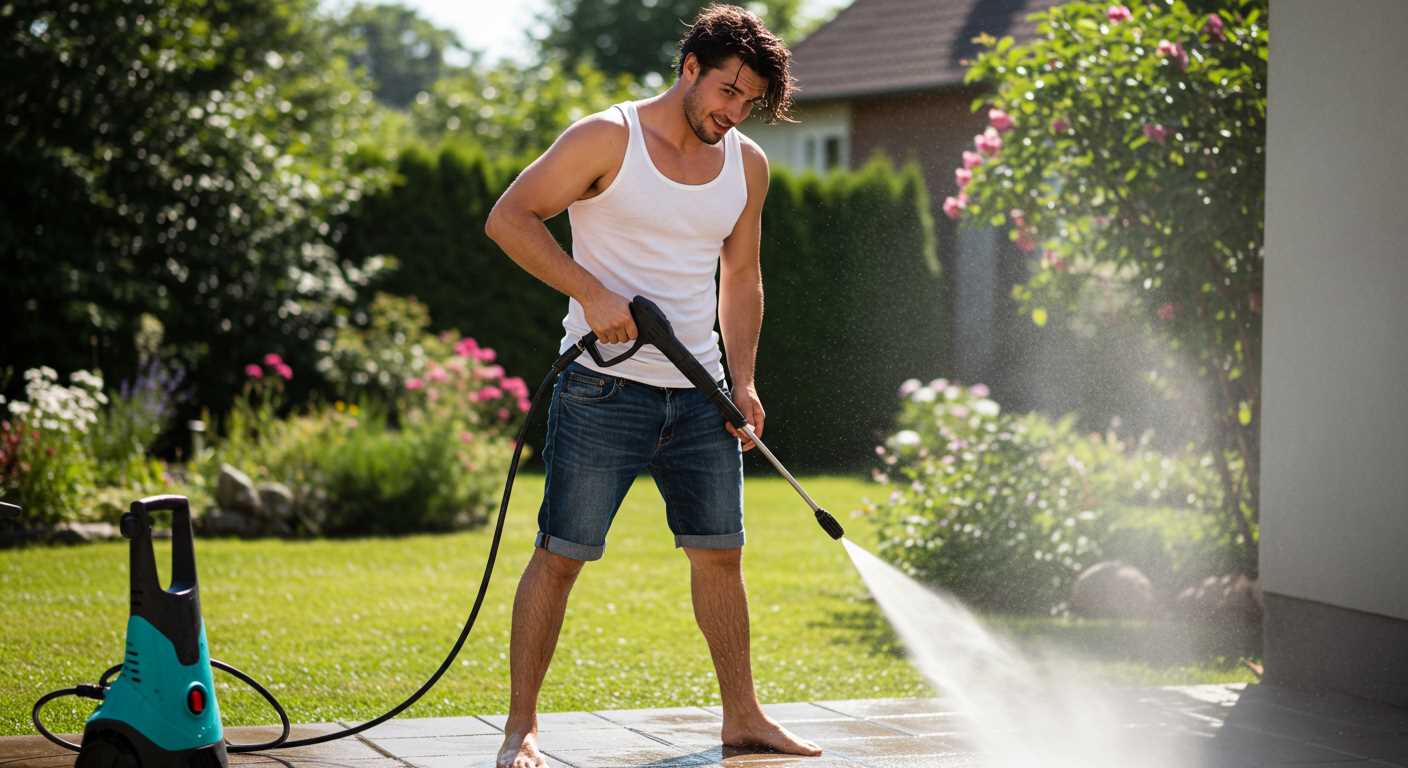
The acetic acid in this household product acts as a natural solvent and antibacterial agent, which can effectively break down grime, soap scum, and mineral deposits. The typical concentration of acetic acid in culinary vinegar ranges from 4% to 8%, providing sufficient strength for common cleaning tasks without causing harm to most surfaces.
A key property of this acidic solution is its ability to react with alkaline substances, such as limescale and hard water stains. When applied, the acid neutralises these alkaline compounds, leading to easier removal. The mild corrosiveness makes it particularly suitable for descaling fixtures and removing spots from glass surfaces, as it leaves no residue behind.
Application and Efficacy
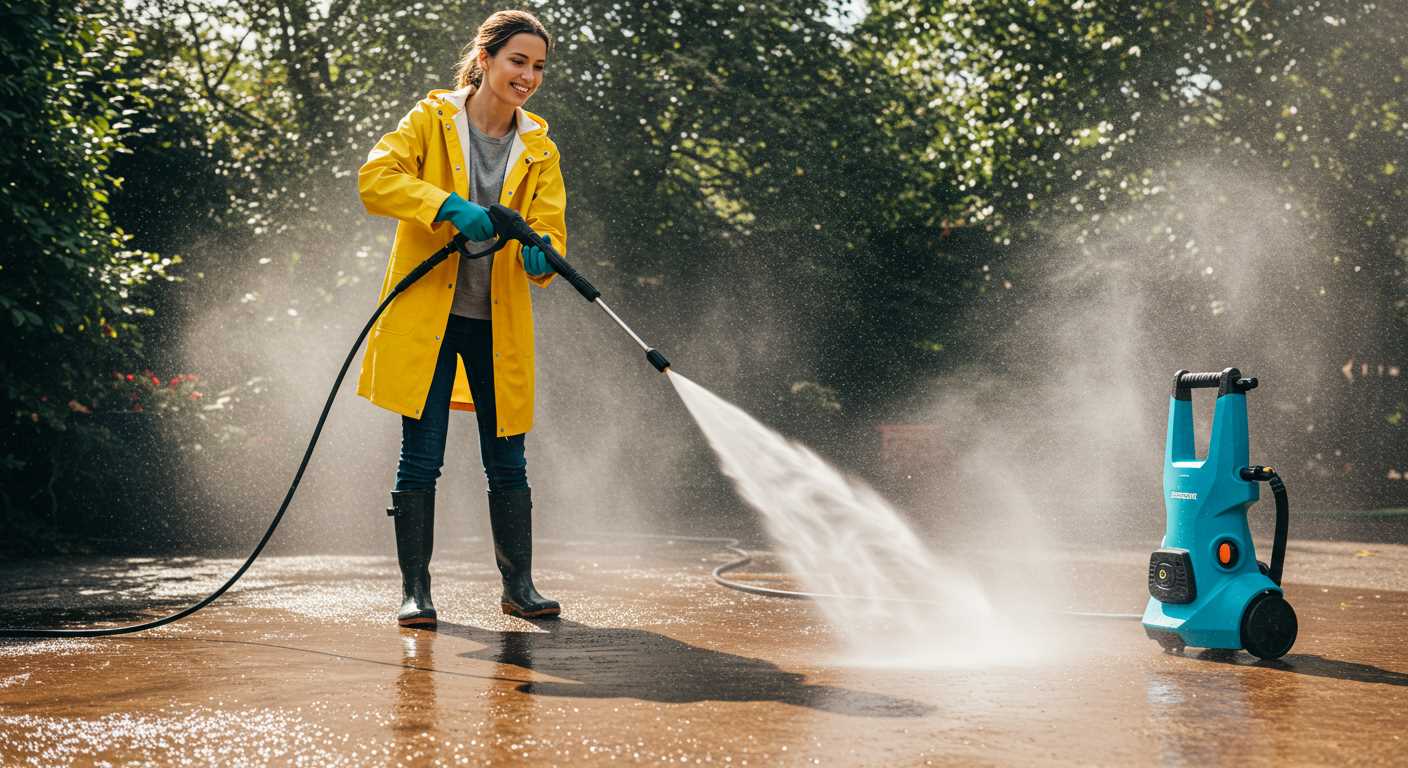
When using vinegar as a cleaning agent, testing on a small, inconspicuous area before broader application is advisable. Certain materials, like natural stone, can be sensitive to acid, leading to etching or damage. As an alternative, diluting with water can reduce the acidity while maintaining cleaning effectiveness for less sensitive surfaces.
For additional cleaning power, mixing this acidic liquid with baking soda creates a foaming reaction that helps lift dirt and grease. This combination works well for tough stains but should be used promptly due to rapid fizzing, which diminishes effectiveness with time.
Environmental Considerations
The biodegradable nature of this product makes it a more environmentally friendly option compared to harsh chemical cleaners. It breaks down naturally without contributing to pollution in water systems. This characteristic is particularly appealing for users seeking sustainable cleaning solutions.
In summary, understanding the chemistry behind this common kitchen ingredient reveals its potential as an effective cleaning solution. By recognising its properties and appropriate applications, one can optimise cleaning efforts while minimizing environmental impact.
Risks of Using Vinegar in Pressure Washers
Employing acidic solutions, like vinegar, in cleaning equipment comes with significant risks. The corrosive nature of acetic acid can lead to damage, particularly to internal components. Seals, o-rings, and hoses may deteriorate more rapidly, reducing the lifespan of the machine. Such degradation often results in costly repairs or replacements.
Compatibility with Materials
Many pressure cleaning units consist of various materials, including plastics and metals. Acetic acid can react unfavourably with some of these components, weakening their structural integrity. Owners should verify whether their specific cleaning tool is designed to handle such substances. Regular use of acidic cleaners might void warranties due to potential damage.
Performance Issues
In addition to physical damage, introducing acidic substances can disrupt the operational efficiency of the machine. Performance may decline as clogs develop in filters and nozzles. This leads to inconsistent water flow and reduced cleaning power, making tedious cleaning tasks less effective. Ensuring the unit operates optimally is crucial for achieving the best results.
Recommended Cleaning Solutions for Pressure Washers
For optimal results, opt for detergents specifically formulated for high-pressure equipment. Look for biodegradable, eco-friendly cleaners designed to break down tough grime without damaging surfaces. These solutions often come in concentrated forms, allowing for efficient use and minimised waste.
Types of Cleaning Solutions
Alkaline-based cleaners effectively tackle oil and grease, making them suitable for automotive cleaning. Acidic options work well on mineral deposits and rust; however, test surfaces for compatibility before use. Always follow the manufacturer’s guidelines regarding dilution ratios to maximise performance without causing harm to the machinery.
Custom Mixtures
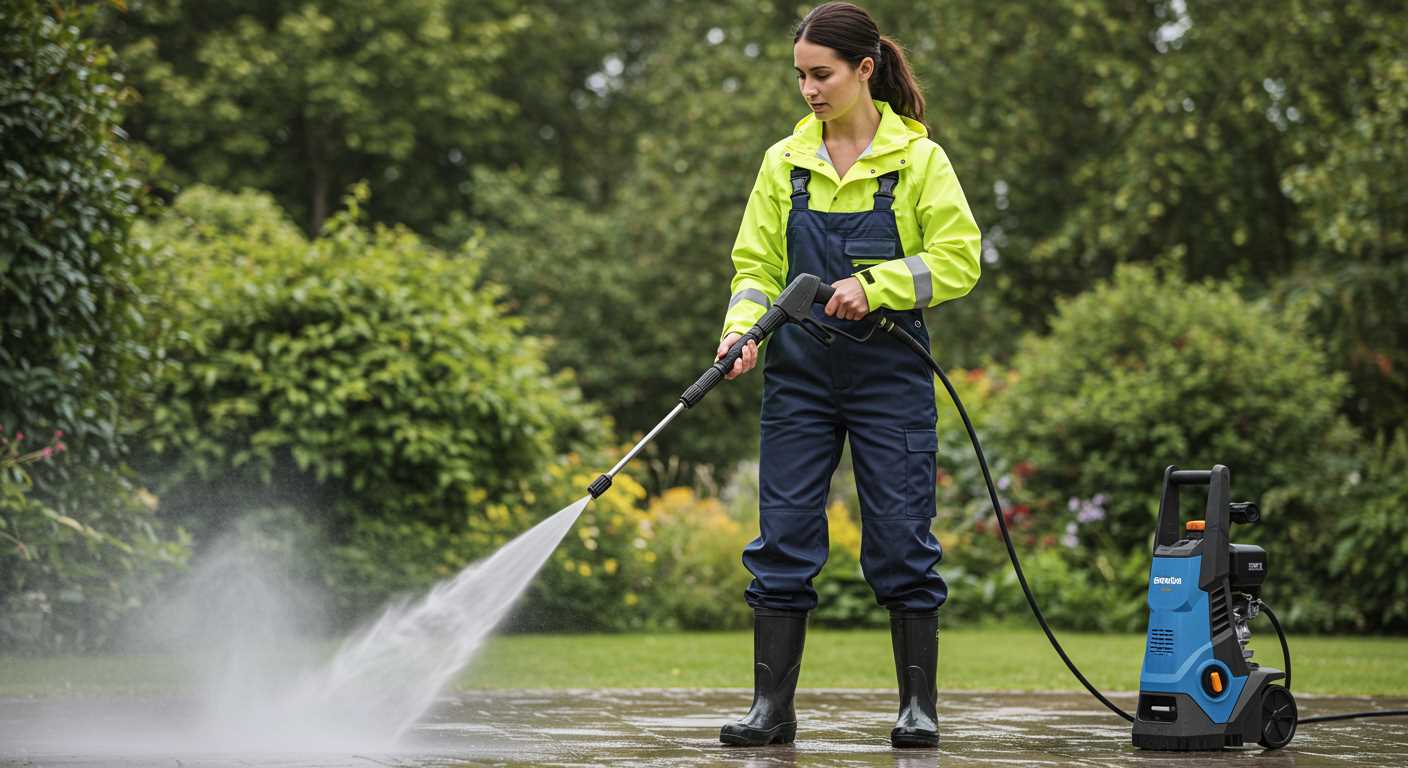
In some instances, creating a diluted solution from household ingredients can be effective. Combine baking soda with warm water for a mild abrasive that can help with stubborn stains. For organic cleaning, a mixture of castile soap and water can also yield satisfactory results. These custom options provide flexibility but ensure they are compatible with your equipment before application.
How to Safely Use Alternative Cleaners in Your Pressure Washer
Using alternative cleaning agents can enhance the cleaning process, but it’s critical to choose them wisely. Here’s a straightforward approach to ensure safety and efficiency:
Selecting Cleaners Wisely
Choose cleaners specifically formulated for high-pressure devices. Avoid corrosive or acidic substances that could damage internal components. Look for biodegradable options to reduce environmental impact.
Dilution and Compatibility
Always dilute cleaners as per the manufacturer’s instructions. Conduct compatibility tests on a small, inconspicuous area of the surface to check for any adverse reactions. This step will help prevent damage to delicate materials.
| Cleaner Type | Recommended Usage | Safety Notes |
|---|---|---|
| Eco-friendly Detergent | General cleaning, safe for most surfaces | Ensure proper ventilation |
| Concrete Cleaners | For pathways and driveways | Wear protective gear, avoid skin contact |
| Degreasers | Removing oil and grease stains | Test on a small area; may require additional rinsing |
Always refer to the user manual for specific recommendations regarding compatible products. It’s wise to follow any safety guidelines, including using gloves and goggles while using cleaners.
Maintenance Tips for Pressure Cleaners After Using Acidic Solutions
After utilising acidic cleaners, immediate and thorough maintenance is critical. Follow these steps to ensure longevity of your equipment:
- Flush the System: Immediately detach the cleaning solution tank and run a mix of fresh water through the unit. This step removes residues from the acidic cleaner, preventing damage to internal components.
- Inspect Hoses and Fittings: Examine all hoses and connections for any signs of wear or corrosion. Acidic substances can deteriorate rubber or plastic parts more rapidly.
- Clean Nozzles: Remove and rinse all nozzle tips to eliminate any build-up caused by the acidic solution. Clear any clogs that might affect performance.
- Check Filters: Ensure filters are clear and replaced if necessary. Acid can collect in filters and restrict water flow, impacting performance.
- Consult the Manual: Always refer to the manufacturer’s guidelines regarding chemical use and maintenance. Specific recommendations can prevent voiding warranties.
Following these guidelines provides a reliable way to extend the life of your equipment and maintain its performance after using alternative cleaning agents.
Expert opinions on using vinegar for outdoor cleaning
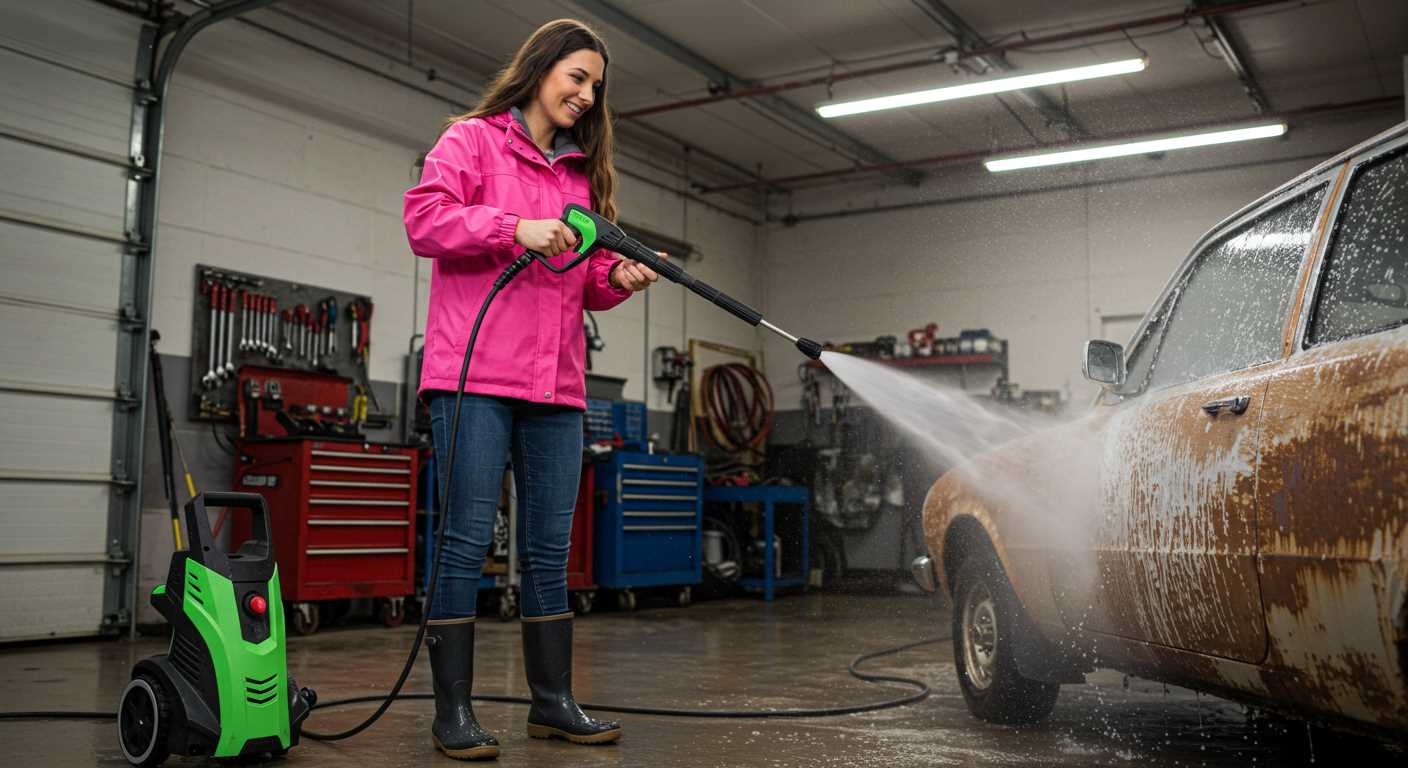
Many in the cleaning industry are cautious when discussing the application of acidic substances for outdoor maintenance tasks. I’ve encountered numerous views on this topic, particularly regarding the use of vinegar. While its natural properties can effectively tackle deposits and stains, it’s vital to consider specific insights from experienced users.
Insights from Experienced Users
Some professionals advocate for the use of vinegar as a safe alternative to harsh chemicals. They highlight its ability to break down dirt and eliminate bacteria. However, seasoned users caution about the potential long-term impact on equipment. The acidic nature can lead to corrosion in components, especially seals and hoses, which are crucial for optimal operation.
Research and Observations
Field studies show varied results; while some users report impressive cleaning outcomes, others experience complications with machine performance post-application. Proper dilution is often suggested; a 1:1 ratio with water may mitigate risks. Observations indicate that environments exposed to high humidity can exacerbate any negative effects from acidic cleaners. An alternative approach includes using dedicated cleaning agents designed for devices, thus ensuring both performance and longevity.
FAQ:
Can I use vinegar in my pressure washer?
You should be cautious about using vinegar in a pressure washer. While vinegar is an effective natural cleaner, it can damage certain components of the machine, such as seals and hoses, if used in high concentrations. It’s best to consult the manufacturer’s guidelines before adding vinegar to ensure it won’t void your warranty or cause any damage.
What are the benefits of using vinegar in a pressure washer?
Using vinegar can help in removing tough stains and grime due to its acidic nature. It is particularly effective against mold and mildew. However, the cleaner should be diluted properly to avoid harming the pressure washer parts. Always rinse the surface thoroughly after applying vinegar to prevent any residue from damaging the finish of the material you are cleaning.
How can I dilute vinegar for use in a pressure washer?
To create a vinegar solution for a pressure washer, mix one part vinegar with several parts water, generally around a 1:4 ratio. This dilution helps reduce the acidity while still retaining its cleaning properties. Before applying the solution, it’s advisable to test it on a small, inconspicuous area to ensure it does not damage the surface being cleaned.
Are there any risks associated with using vinegar in a pressure washer?
Yes, there are risks associated with using vinegar. The acidity can corrode metals and rubber parts, potentially leading to leaks or other failures in the machine. This is especially true for prolonged exposure. If the pressure washer has any components listed in the user manual as being incompatible with acidic cleaners, it is best to avoid vinegar entirely.
Can I use other types of cleaners instead of vinegar in my pressure washer?
Absolutely, there are many other cleaners available that are designed specifically for pressure washers. These cleaners are usually formulated to be safe for the machine while effectively removing dirt and stains. Always check the label for compatibility with your pressure washer model. If you prefer a natural cleaner, consider using baking soda mixed with water, which is less likely to cause damage compared to vinegar.






